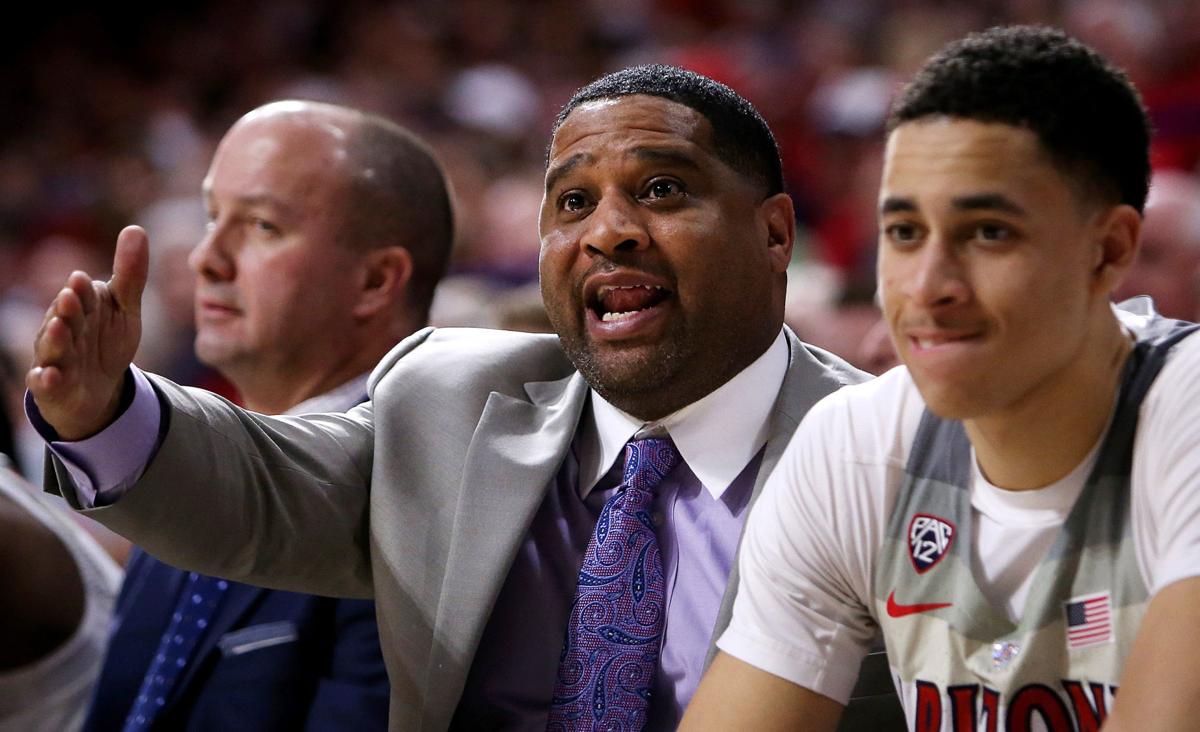Attorneys for former Wildcats assistant coach Emanuel “Book” Richardson and his co-defendants have asked that the federal charges be dropped, saying that the men didn’t commit any crimes.
Outside the context of NCAA rules, the actions of Richardson and other basketball coaches are “not remotely considered unlawful,” the 39-page joint motion says.
Richardson was arrested in September 2017 as part of the FBI’s investigation into NCAA recruiting. The indictment against Richardson says he took at least $20,000 in bribes from aspiring sports agent and co-defendant Christian Dawkins. In exchange, Richardson promised to influence Wildcats players to sign with Dawkins when they entered the NBA. The indictment said some of the money Richardson took from Dawkins and financial adviser Munish Sood was used to pay a high school basketball recruit in exchange for the player’s commitment to attend the UA.
Richardson was charged with federal funds bribery, honest services fraud, wire fraud conspiracy and Travel Act conspiracy. If convicted on all charges, he’s facing up to 60 years in prison and $1.5 million in fines. The UA suspended and eventually fired Richardson.
On Monday, lawyers for Richardson, Dawkins, Adidas representative Merl Code, former USC assistant coach Tony Bland and former Oklahoma State assistant coach Lamont Evans filed the motion and several subsequent motions. They say, among other things, that the government “singled out certain alleged NCAA rules violations as ‘corrupt’ and decided to prosecute them as federal crimes.”
Sood took a plea deal rather than face a federal trial in October; Dawkins and Code were both found guilty of numerous felony fraud charges in that case, and are awaiting sentencing. Richardson is scheduled to go on trial in April; some legal experts say Richardson is likely to seek a plea deal given what happened to Dawkins and Code in a nearly identical case.
“The indictment should be dismissed because the allegations fail to support a conviction under any viable theory of criminal liability,” the motion says, going on to call the government’s allegations “a novel theory.”
MORE: NCAA investigations will drag past Final Four, president Mark Emmert says
The attorneys called the bribery and honest services fraud charges levied against the defendants “unsustainable,” saying the applicable laws require an alleged quid pro quo in which the coaches use their authority as university employees. That didn’t happen, the motion says.
“Recommending financial advisors for players to use after they joined the NBA was not among Mr. Evans, Mr. Richardson, or Mr. Bland’s duties as college basketball coaches, nor were their respective Universities in the business of making such recommendations,” the motion says. “Thus, Mr. Evans, Mr. Richardson and Mr. Bland did not act as agents of their respective universities when they allegedly did so, nor did they violate any fiduciary duty they owed to their employers.”
Based on the government’s “faulty theory,” the coaches’ “otherwise lawful conduct was transformed” into a federal crime because it allegedly led to NCAA rules violations, according to the motion.
The government’s wire fraud and Travel Act conspiracy allegations are equally flawed and the government is overstepping by claiming the conduct was a scheme against the universities, the motion says.
“The purpose of the alleged payments was not to dupe the Universities into awarding scholarships to any players on false pretenses, as would be required for wire fraud,” the motion says.
The payments made to the coaches did not defraud the universities, according to the motion, which goes on to say that the government is pushing the limits of the wire fraud statute by referencing the coaches’ annual certification in which they say they weren’t aware of any NCAA rules violations.
“This interpretation, whereby an undisclosed NCAA rules violation coupled with a false certification equals wire fraud, would criminalize nearly every NCAA rules violation, even where, as here, those violations had nothing to do with the Universities’ scholarship decisions,” the motion says.
In addition, none of the improper conversations or bribes took place on the universities’ property or during any official university activities, nor did the misconduct involve financial or other transactions related to the universities, the motion states. The indictment never claimed that the coaches paid money to any university players or their families, according to the motion.
“Outside the context of the NCAA rules, these activities are not remotely considered unlawful,” the motion says. “This is just the sort of limitless concept of criminal liability that due process forbids.”





